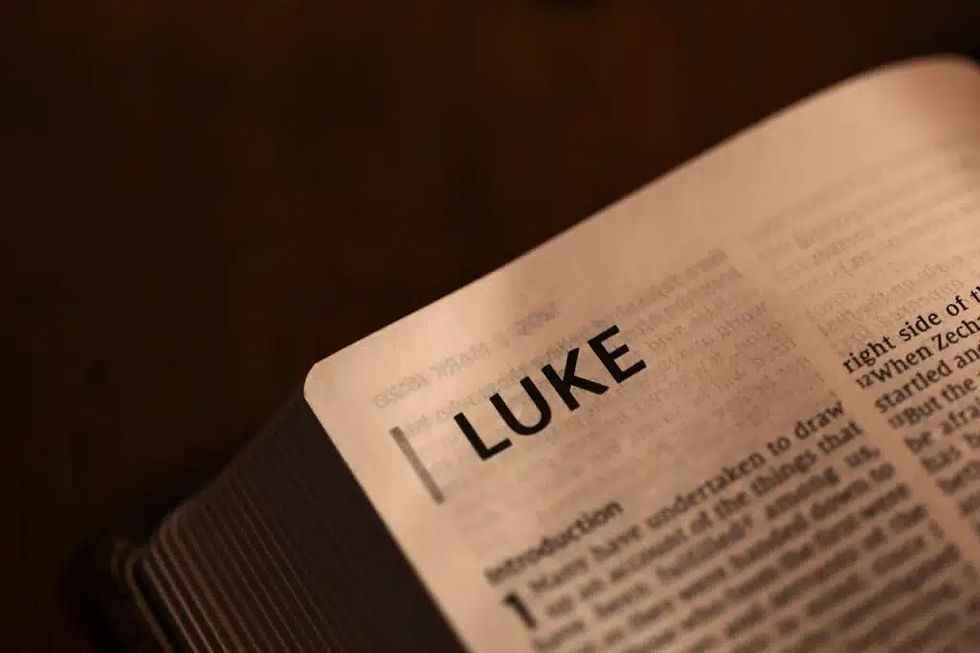Grace
- Tim Blodgett
- Jul 1, 2025
- 3 min read
I made a mistake in my biblical exegesis ordination exam[1]. I am sure I made many mistakes over the breadth of the exams, but I made one glaring mistake on the exegesis exam. It was so bad that it has stuck with me for almost twenty years now. I passed (obviously) and went on to do a lot of good ministries so the impact was negligible, but it still was a mistake.

The exam was over Jesus’ temptation in the wilderness in Luke’s gospel. I started working in the Greek version of that passage and created an English translation. I was careful to translate the words and parse the verbs correctly. While we have excellent English translations, most are smoothed over versions of the Greek and lose some of the precision of that language. From there, I went on to study key words, researched the history of interpretation of the passage, and read commentaries about the selection. In those days, I could work in the Greek well and loved the research aspect of these exegesis papers, so I finished a few days early and sent the test to be scored.
While the other ordination exams are taken over a short period of a few hours, the exegesis exam has a week time frame before it needs to be turned in. Ideally, you should use all that time for research, writing, and reflection. I say that to say, I should have taken the entirety of the allotted time and reflected more on what I wrote because I might have come to my senses. The cardinal rule of ordination exams and especially the biblical exegesis ordination exam is do not get too creative. The readers/graders are looking for completeness and thoroughness of work and not for some new interpretation of God’s word by a seminary student. I was dumb enough or arrogant enough to set that advice aside. Despite all of this confession, I will not go into the asinine new interpretation of Luke that I wrote for this exam. It is still wrong and an embarrassment.
A strange thing happened, however. I passed. One grader did not mention the misguided vignette at all. The other reader pointed out that I was wrong but judged the exegesis based on the whole of the work and not a few paragraphs of poor work. A number of my friends did not pass that exam and I was lucky that I did.
This event has stuck with me. It also stayed with me because it illustrated a powerful dynamic of grace. For many of us, the weight of sin and brokenness is overwhelming. We know we have done wrong and that awareness presses us down. Fortunately, God’s judgment does not look at our sins and mistakes, but at the sinlessness of Jesus Christ who lived among us bringing good news, who died on the cross for our sins, and who was resurrected to bring new life. Our gospel hope is in the grace of God to overlook our failings and to judge us on the good work of his son, Jesus Christ. And passing that test is far more important than any ordination exam.
[1] The Exegesis exam is a five to ten page paper about a particular biblical text written over a week that candidates for ministry must pass to become ministers in the PCUSA.
Blessings,
Rev. Tim Blodgett




Comments